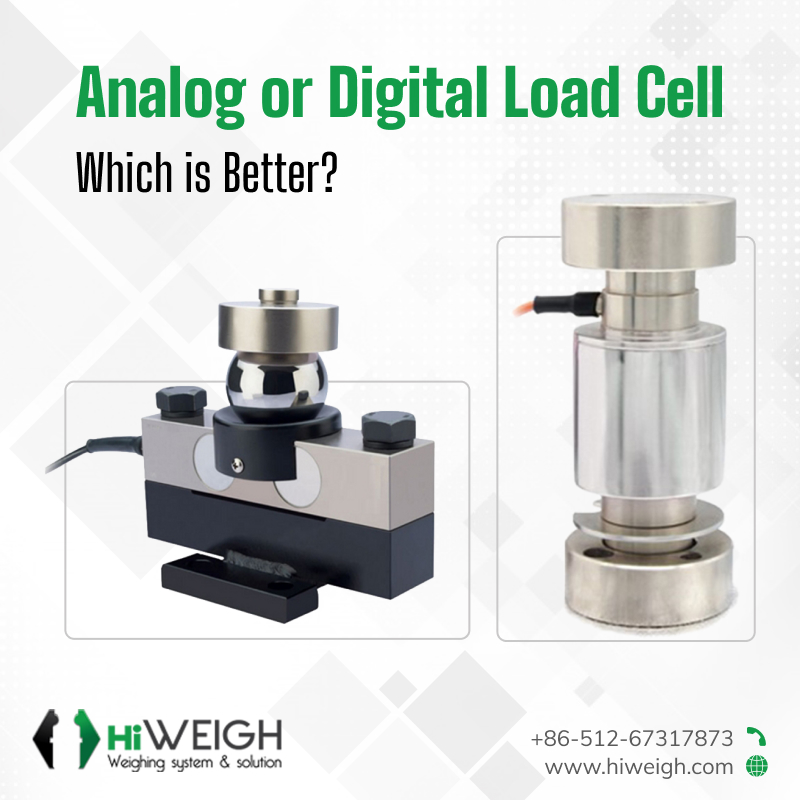When buying a weighing scale, it is important to look over every aspect of it. From the durability and structure to the indicator and output options, everything needs to be taken into account. But one factor that is most important when buying a China medical scale or any type of weighing equipment is the type of load cell used.
Load cells are responsible for measuring the weight or force applied on a scale. They convert the voltage signal into an electric signal, which is then displayed on the weight indicator for easy reading. Essentially, load cells determine the accuracy and precision of a weighing balance. They are primarily found in two forms– analog load cell and digital load cell.
While buying a weighing balance, you must decide the type of load cell you want for your scale. Below here, we take a closer look at the main aspects of differences between the two load cell options.



Signal strength
Strain gauge signals are used by both analog and digital cells to measure the strain that a force applies on the scale. In both cases, the strain gauge signal emerges as an analog electric voltage. With analog load cells, the analog to digital conversion takes place in real-time at the weighing indicator. But with digital cells, the voltage readings are converted into digital signals using an A/D processor. The digital signal is much stronger and has lesser fluctuations than an analog signal. This means that a digital load cell produces a more accurate reading compared to an analog cell.
Signal Content
Analog load cells process the electrical voltage signals, which are then converted and displayed as weight readings in the indicator. Digital cells, on the other hand, capture data from each load cell and convert the values into digital signals in a binary language, much like computers. The transmission of binary data can fight external interference from temperature, radio frequency, and so on. This simply means that digital cells offer a more reliable weight reading than analog cells.
Calibration Needs
For a perfectly working weighing scale, you must ensure that the load cell is properly calibrated to achieve accurate and precise readings. When you buy from an industrial scale manufacturer, digital load cells comein a pre-calibrated mode. No on-field calibration is required, thus, saving time and costs. But if you buy an analog cell, you will have to call in experts to get the calibration done during the installation time. So, if you want to save time and hassle, digital cells make a smarter option.
Cost Effectiveness
If you go by the upfront cost and affordability of a weighing scale, scales with analog load cells are a cheaper option than the ones with digital load cells. But one must also think about longevity. Analog load cells cannot guarantee long-lasting performance. Digital scales, while expensive, do not break down very often and promise longer serviceability. Hence, they are more cost-effective in the long run.
Conclusion
Buying a weighing scale is an important decision. And clearly, picking the right type of load cell is a crucial part of it. As we have discussed in the points above, digital seems to win over the analog counterpart. But what’s most important is to buy from a reputed and reliable manufacturer. HiWEIGH is a trusted and known name in the weighing scale industry. From being a crane scale manufacturer to a weighbridge manufacturer, we do it all.
